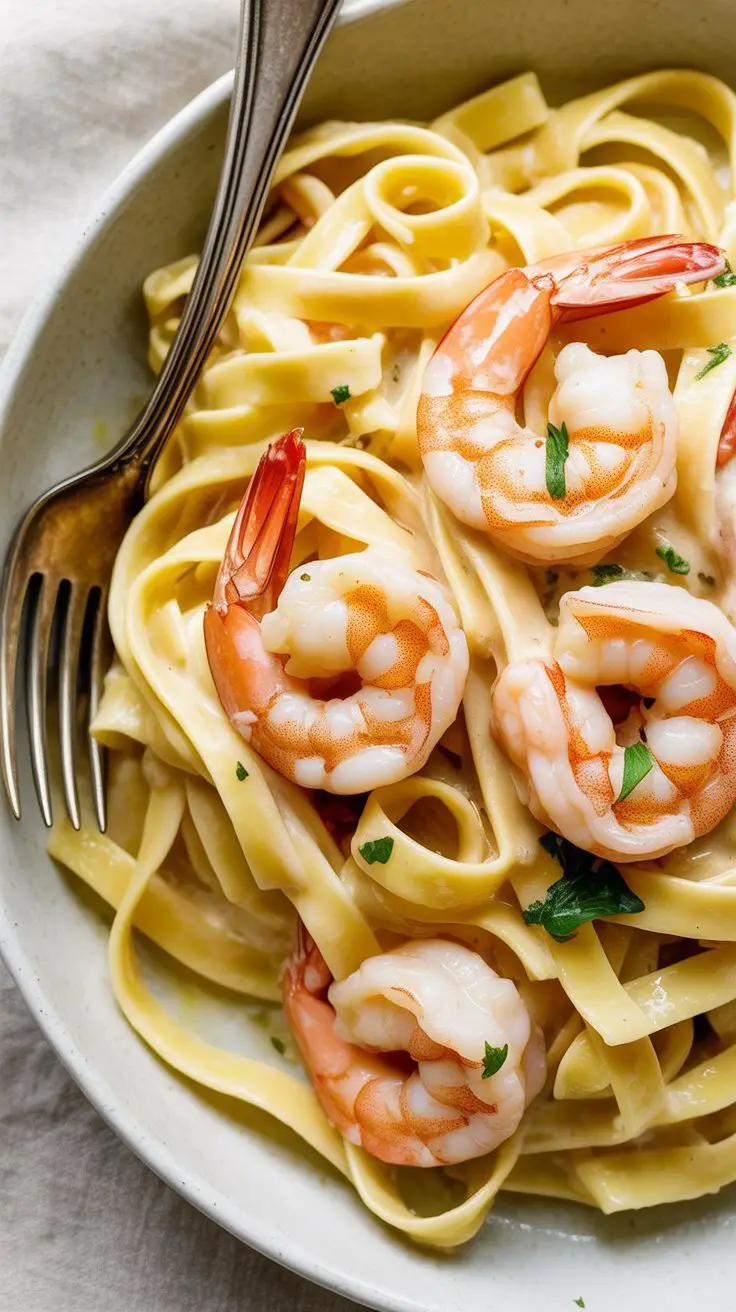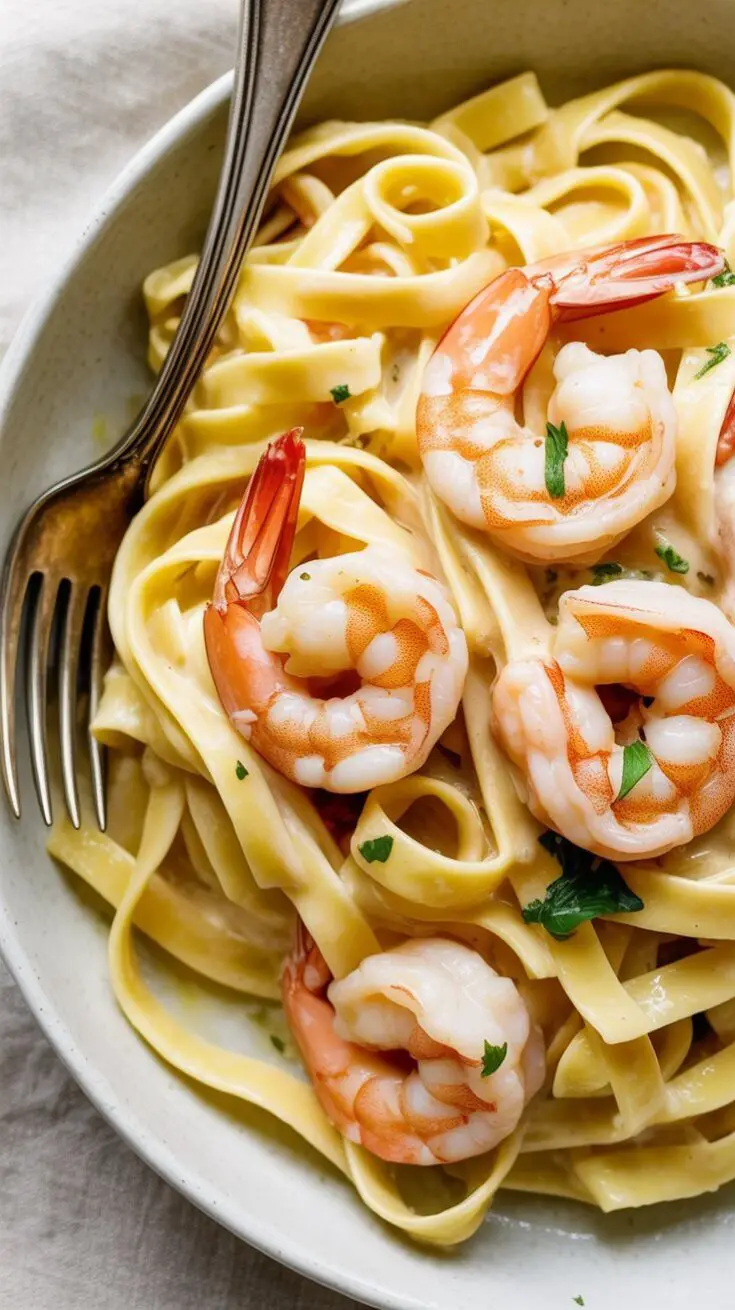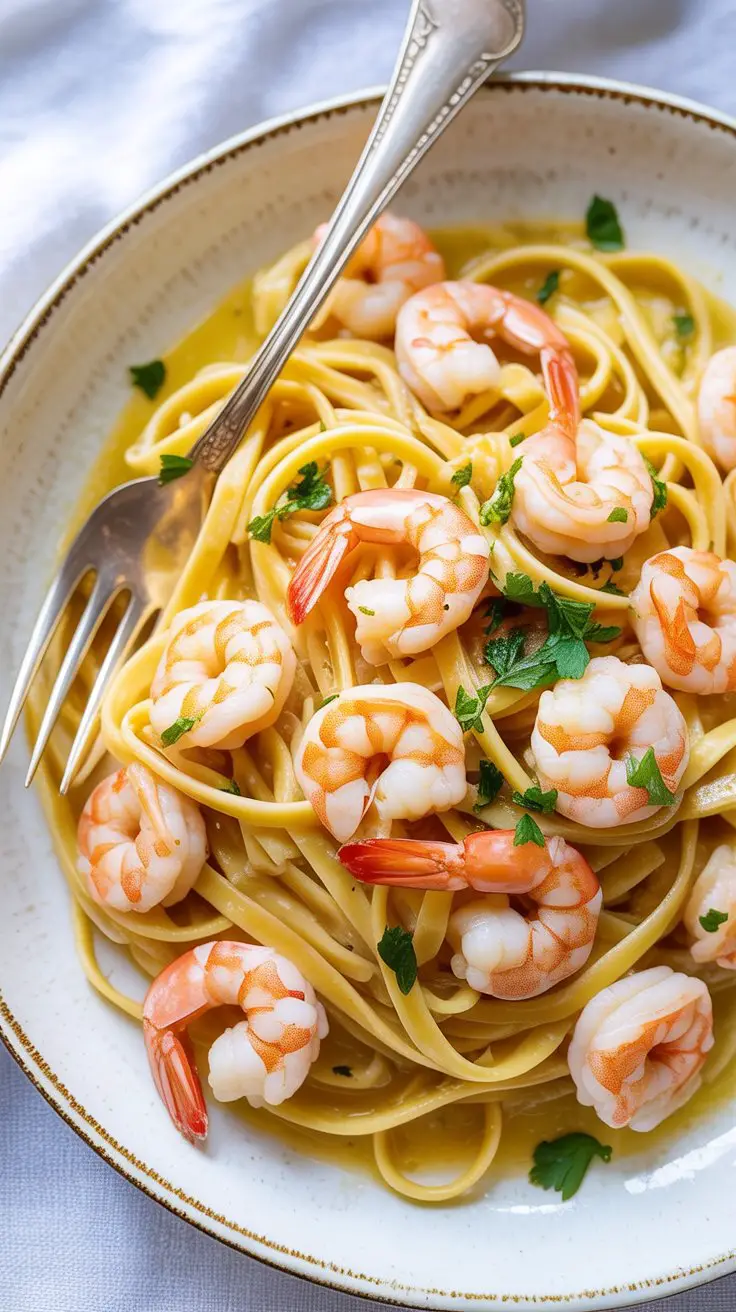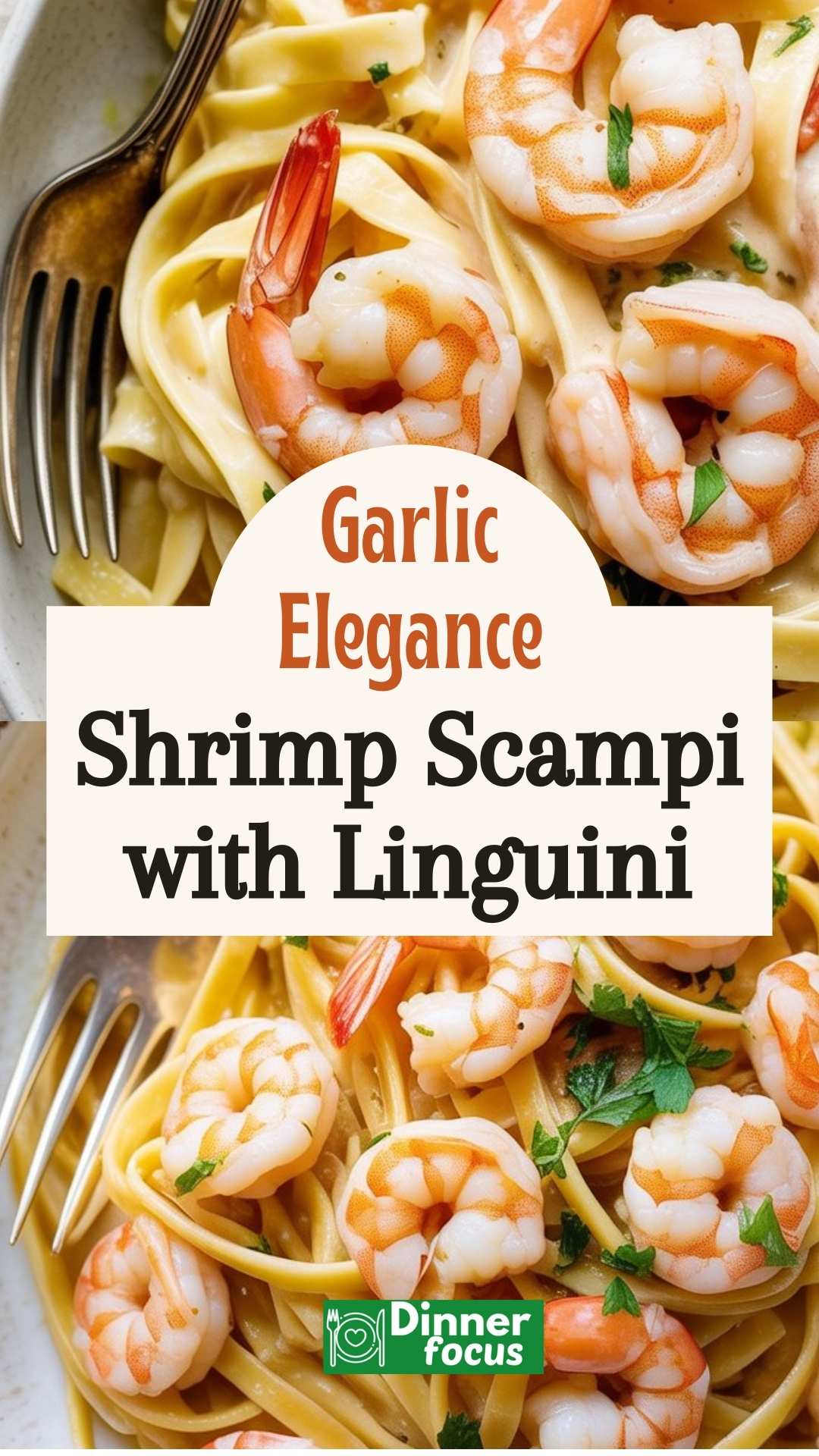There’s something about shrimp cooked in garlic butter with a splash of wine that makes a dinner feel instantly special without requiring hours in the kitchen. This Shrimp Scampi Linguine is one of those recipes I reach for when I want to serve something that feels restaurant-worthy, but I can still pull off on a busy weeknight.
 I’ve made this pasta for everything from quiet Friday nights at home to family birthdays where the table was packed with relatives. It always disappears fast, usually with everyone swiping the last bit of sauce with bread.
I’ve made this pasta for everything from quiet Friday nights at home to family birthdays where the table was packed with relatives. It always disappears fast, usually with everyone swiping the last bit of sauce with bread.
Why I Always Come Back to Shrimp Scampi
I’ve always loved cooking with shrimp because it’s quick, forgiving, and it brings such a sweet, briny flavor to dishes. Growing up, it was the kind of “treat protein” my family made on weekends, and it still feels like a little celebration every time I cook with it.
The best part is how simple the ingredient list is. You don’t need fancy pantry items or complicated sauces. Just butter, garlic, white wine, lemon, and pasta. It’s proof that you don’t need a dozen ingredients to make something that tastes like a holiday.
What Shrimp Scampi Really Means
The name can be confusing—“scampi” originally meant langoustines in Italian. But over time, especially in Italian-American kitchens, it became more about the style of preparation than the exact seafood. Tossing shrimp in garlic, butter, and white wine became the version most of us know and love.
For me, shrimp scampi linguine is about restraint. The sauce is light and fragrant, letting the shrimp stay the star. Every time I make it, I’m reminded that good cooking is often about knowing when to stop adding things.
 My Cooking Notes and Tips
My Cooking Notes and Tips
These are the little things I’ve learned over years of making this dish:
-
Buy the best shrimp you can find. If you can get fresh, wonderful. If not, frozen shrimp thawed properly works just fine. I often keep a bag in the freezer for “emergency” pasta nights.
-
Salt the pasta water like the sea. It’s the only chance you have to season the pasta itself.
-
Don’t walk away from the shrimp. They go from perfectly tender to rubbery in minutes. As soon as they curl into a “C” shape and turn pink, they’re done.
-
Use sliced garlic instead of minced. It gives the dish a gentler garlic flavor that complements rather than overwhelms the shrimp.
-
Let the sauce simmer just enough. You want the alcohol from the wine to cook off so it tastes mellow, not sharp.
-
Fresh lemon juice only. Bottled lemon juice just doesn’t have the same bright pop.
And while I usually make this with linguine, I’ll happily swap in spaghetti, tagliatelle, or even angel hair if that’s what’s in the pantry.
A Word About the Wine
For cooking, I like to use a dry white wine I’d actually enjoy drinking. Sauvignon Blanc and Pinot Grigio are two I grab most often. Cooking wine isn’t worth it—it has a salty, flat taste that can drag the dish down.
If I don’t want to open a new bottle, I reach for dry Vermouth. It lasts longer in the cupboard and works beautifully in recipes like this.
 What to Serve Alongside
What to Serve Alongside
Whenever I serve shrimp scampi linguine, I balance it out with something fresh. A crisp green salad or a tomato-basil caprese always works. If I’m serving a crowd, I’ll add a simple arugula salad with shaved parmesan and lemon dressing.
And I’d say this dish is incomplete without good bread on the table. A warm baguette or homemade garlic bread is non-negotiable in my kitchen because that buttery garlic sauce is too good to waste.
For dessert, I like to keep it light. A few chocolate truffles, or even a bowl of fresh berries with whipped cream, rounds out the meal without feeling heavy.
Shrimp Scampi with Linguini

Shrimp Scampi Linguine is the kind of dinner that looks impressive but comes together in minutes.
Ingredients
- 500 g (½ lb) linguine
- 500 g (½ lb) shrimp or prawns, peeled and deveined
- 3 tablespoons butter
- 1 tablespoon olive oil
- 2 cloves garlic, thinly sliced
- ½ lemon, juice only
- ½ cup (125 ml) dry white wine
- Salt and black pepper, to taste
- 1–2 tablespoons fresh flat-leaf parsley, chopped
Instructions
- Bring a large pot of salted water to a boil and cook the linguine until just al dente. Reserve ½ cup of pasta water before draining.
- Meanwhile, heat olive oil with 1 tablespoon of butter in a large skillet over medium heat. Add the shrimp with a pinch of salt and cook for about 1 minute per side, just until they turn pink. Remove them to a plate and set aside.
- In the same skillet, melt the remaining butter and add the garlic. Cook gently for about a minute, then stir in the lemon juice and wine. Let the sauce simmer for 2–3 minutes until slightly reduced.
- Add the reserved pasta water and drained linguine to the skillet, tossing to coat. Return the shrimp and any juices to the pan, and mix everything together until glossy and well combined.
- Season with salt and pepper to taste, finish with chopped parsley, and serve immediately.
Nutrition Information
Yield
2Serving Size
1Amount Per Serving Calories 1738Total Fat 45gSaturated Fat 18gTrans Fat 1gUnsaturated Fat 23gCholesterol 2683mgSodium 12269mgCarbohydrates 22gFiber 0gSugar 0gProtein 285g
Dinnerfocus.com, occasionally offers nutritional information for recipes contained on this site. This information is provided as a courtesy and is an estimate only. This information comes from online calculators. Although allchickenrecipes.com attempts to provide accurate nutritional information, these figures are only estimates.
How to Handle Leftovers
Leftovers don’t last long in my house, but if you find yourself with some, store them in the fridge for 2–3 days. The pasta softens a bit as it sits, but the flavors actually deepen. I usually reheat it gently in the microwave or toss it quickly in a skillet with a splash of water to loosen the sauce.
I wouldn’t freeze it, though. Pasta just doesn’t hold up well after thawing—it loses its bite and turns mushy. Shrimp especially isn’t the same once frozen twice. Best to enjoy it fresh while it’s at its best.
Try other Shrimp recipes:
 My Cooking Notes and Tips
My Cooking Notes and Tips What to Serve Alongside
What to Serve Alongside